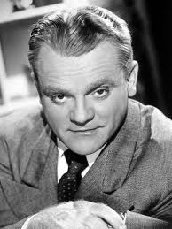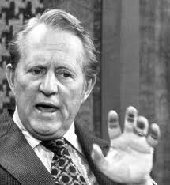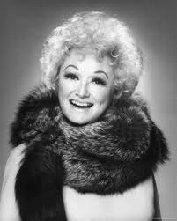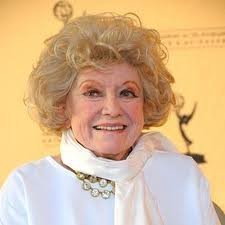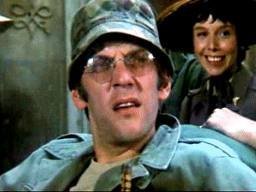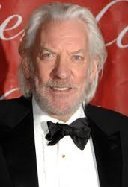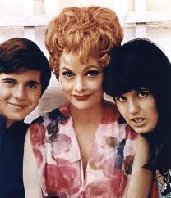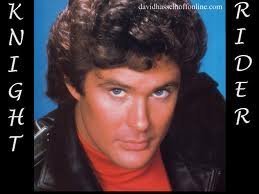
Terrence Stephen McQueen (March 24, 1930 – November 7, 1980)[4] was an American actor. His antihero persona, emphasized during the height of the counterculture of the 1960s, made him a top box-office draw for his films of the 1960s and 1970s. He was nicknamed the "King of Cool" and used the alias Harvey Mushman in motor races.
McQueen received an Academy Award nomination for his role in The Sand Pebbles (1966). His other popular films include The Cincinnati Kid (1965), Nevada Smith (1966), The Thomas Crown Affair (1968), Bullitt (1968), The Getaway (1972), and Papillon (1973). In addition, he starred in the all-star ensemble films The Magnificent Seven (1960), The Great Escape (1963), and The Towering Inferno (1974).
In 1974, McQueen became the highest-paid movie star in the world, although he did not act in film for another four years. He was combative with directors and producers, but his popularity placed him in high demand and enabled him to command the largest salaries.
Terrence Stephen McQueen was born to a single mother on March 24, 1930, at St. Francis Hospital in Beech Grove, Indiana, a suburb of Indianapolis. McQueen, of Scottish descent, was raised a Roman Catholic. His parents never married. McQueen's father, William McQueen, a stunt pilot for a barnstorming flying circus, left his mother, Julia Ann (or Julianne) Crawford, six months after meeting her. Several biographers have stated that Julia Ann was an alcoholic. Unable to cope with caring for a small child, she left the boy with her parents (Victor and Lillian) in Slater, Missouri, in 1933. As the Great Depression worsened, McQueen and his grandparents moved in with Lillian's brother Claude and his family at their farm in Slater. McQueen later said that he had good memories of living on the farm, noting that his great-uncle Claude "was a very good man, very strong, very fair. I learned a lot from him."
Military service
In 1947, after receiving permission from his mother (since he was not yet 18 years old), McQueen enlisted in the United States Marine Corps. He was sent to Parris Island for boot camp. He was promoted to private first class and assigned to an armored unit. He initially struggled with conforming to the discipline of the service, and was demoted to private seven times. He took an unauthorized absence, failing to return after a weekend pass expired. He was caught by the shore patrol while staying with a girlfriend (Barbara Ross) for two weeks. After resisting arrest, he was sentenced to 41 days in the brig.
After this, McQueen resolved to focus his energies on self-improvement and embraced the Marines' discipline. He saved the lives of five other Marines during an Arctic exercise, pulling them from a tank before it broke through ice into the sea. He was assigned to the honor guard responsible for guarding the presidential yacht of U.S. President Harry S. Truman. McQueen served until 1950, when he was honorably discharged. He later said he had enjoyed his time in the Marines. He remembered this period with the Marines as a formative time in his life, saying, "The Marines made a man out of me. I learned how to get along with others, and I had a platform to jump off of."
After Never So Few, the film's director John Sturges cast McQueen in his next movie, promising to "give him the camera". The Magnificent Seven (1960), in which he played Vin Tanner and starred with Yul Brynner, Eli Wallach, Robert Vaughn, Charles Bronson, Horst Buchholz, and James Coburn, became McQueen's first major hit and led to his withdrawal from Wanted: Dead or Alive. McQueen's focused portrayal of the taciturn second lead catapulted his career. His added touches in many of the shots (such as shaking a shotgun round before loading it, repeatedly checking his gun while in the background of a shot, and wiping his hat rim) annoyed top-billed Brynner, who protested that McQueen was stealing scenes. (In his autobiography, Eli Wallach reports struggling to conceal his amusement while watching the filming of the funeral-procession scene where Brynner's and McQueen's characters first meet: Brynner was furious at McQueen's shotgun-round-shake, which effectively diverted the viewer's attention to McQueen. Brynner refused to draw his gun in the same scene with McQueen, not wanting his character outdrawn.)
On November 7, 1980, McQueen died of a heart attack at 3:45 a.m. at a Juárez hospital, 12 hours after surgery to remove or reduce numerous metastatic tumors in his neck and abdomen. He was 50 years old. According to the El Paso Times, McQueen died in his sleep.
Leonard DeWitt of the Ventura Missionary Church presided over McQueen's memorial service. McQueen was cremated, and his ashes were spread in the Pacific Ocean.
To read a lot more, go here: https://en.wikipedia.org/wiki/Steve_McQueen
- 1 (8-ounce) package cream cheese, softened
- 3/4 cup mayonnaise
- 1/2 cup grated Parmesan cheese
- 1/2 teaspoon garlic powder
- 1 teaspoon lemon juice
- 1 (10-ounce) package frozen chopped spinach, thawed and well-drained
- 2 (2-ounce) jars diced roasted red bell peppers, drained well
- 1 (3-ounce) package bacon bits
- 5 (10-inch) flour tortillas
- In a large bowl, combine cream cheese, mayo, Parmesan cheese, garlic powder, and lemon juice; mix well. Stir in spinach, roasted bell peppers, and bacon bits.
- Spread mixture on tortillas, distributing evenly. Roll up jellyroll fashion; wrap each in plastic wrap.
- Chill 1 to 2 hours, or until ready to serve. Cut into 1/2-inch thick slices and serve.


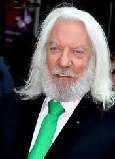
1947 – Camilla, Duchess of Cornwall
National Tattoo Day on July 17th recognizes the history, culture, and artists dedicated to etching ink permanently on the skin. The day might just be the date to get that ink you’ve been contemplating.
Evidence of humans marking their bodies with permanent designs have existed for thousands of years. Egyptian and ice mummies reveal several forms of religious and status symbols.
The word “tattoo” is derived from the Polynesian language for tatau, which means “to tap or to mark.” Around the world, cultures surrounding tattooing vary, and some have changed very little over time. In the United States, sailors brought tattooing to coastal shores from their island exploits.
Getting inked continues to grow as technology and acceptance increase. While age, gender, religion, and class once divide the tattooed from the non-tattooed, those barriers are less common than they used to be. The reasons why we go under the needle differ, too. A tattoo may represent a significant event or hold intensely personal meaning. However, some people do get tattoos on a whim. Still, others confess, the need for a new tattoo is an addiction.
As the art form increases in popularity, considering a few things before getting a tattoo is essential:
Getting a Tattoo
- Research and find a reputable artist. Remember, this art is permanent. You will want a polished finished piece with no regerts – that is, no regrets.
- Once you’ve found an artist, be sure you have a design in mind. If you aren’t an artist, pulling an idea from your head and making it a reality will take time to develop.
- Check spelling. Fact check. If you use a foreign word or a quote in your design, research the meaning and check the spelling. The same applies to symbols. Just because a website translated a meaning or said symbol represented peace or love in a specific culture, doesn’t mean it’s true. And it’s not the artist’s responsibility to know either. Sometimes the design means something altogether different to the client.
- Be prepared to be placed on a waiting list. Good artists are in demand.
- You will pay more for good art. Nobody wants a lousy tattoo.
Day of Your Appointment
- Clear your day, especially if you’re getting a large tattoo.
- Arrive on time. Most artists charge by the hour, and any adjustment throws their entire day off. You can’t rush good art.
- Dress comfortably. You will be sitting or lying in a fixed position for long periods of time.
- Eat something. A protein bar won’t make you feel stuffed but will keep you alert and satisfied throughout the session.
- Bring water and stay hydrated.
- Tip your artists when the session is over.
NATIONAL TATTOO DAY HISTORY
National Tattoo Day has been observed since 2016. However, National Day Calendar continues researching the origins of the day.



.jpg)


